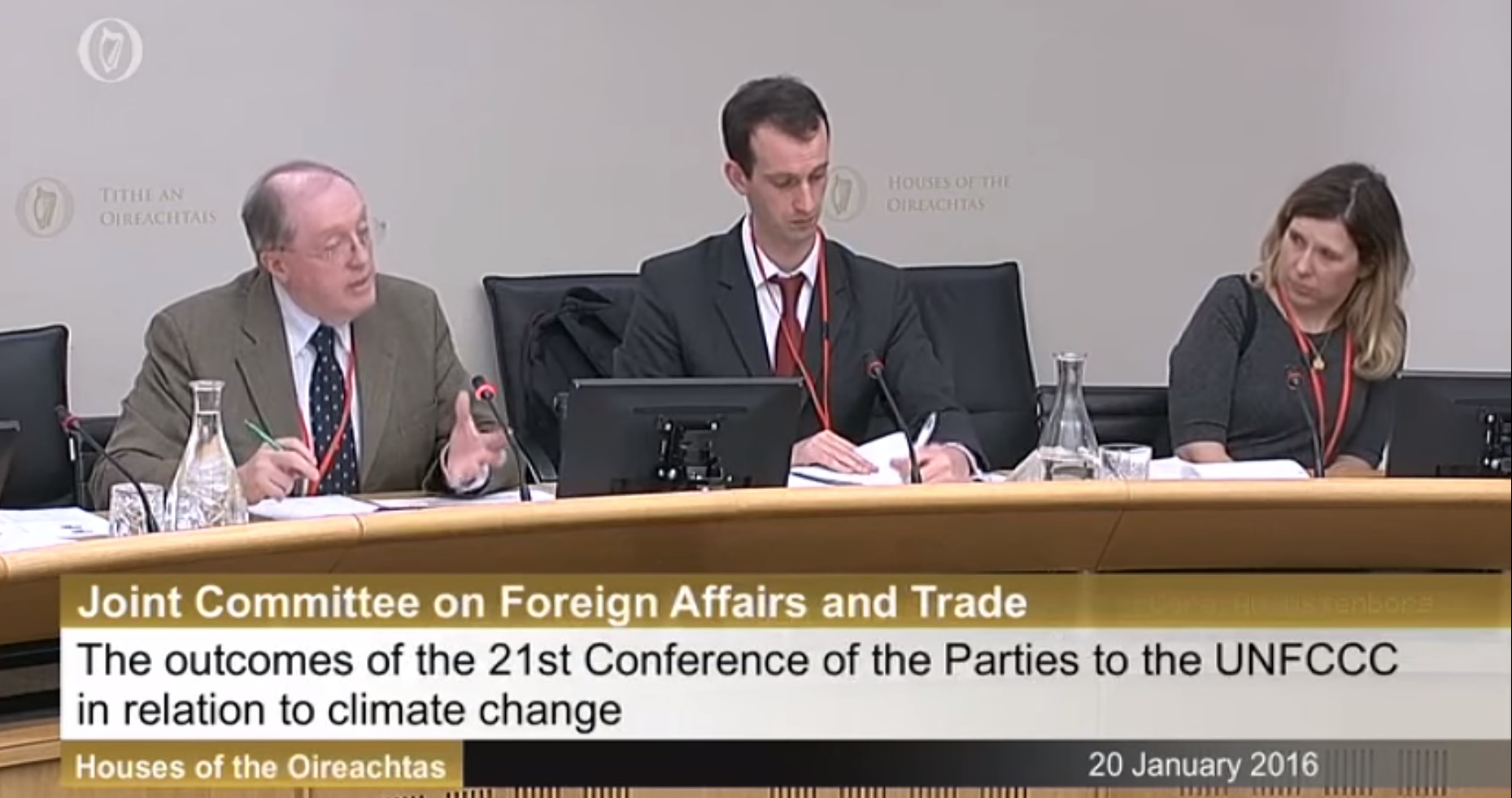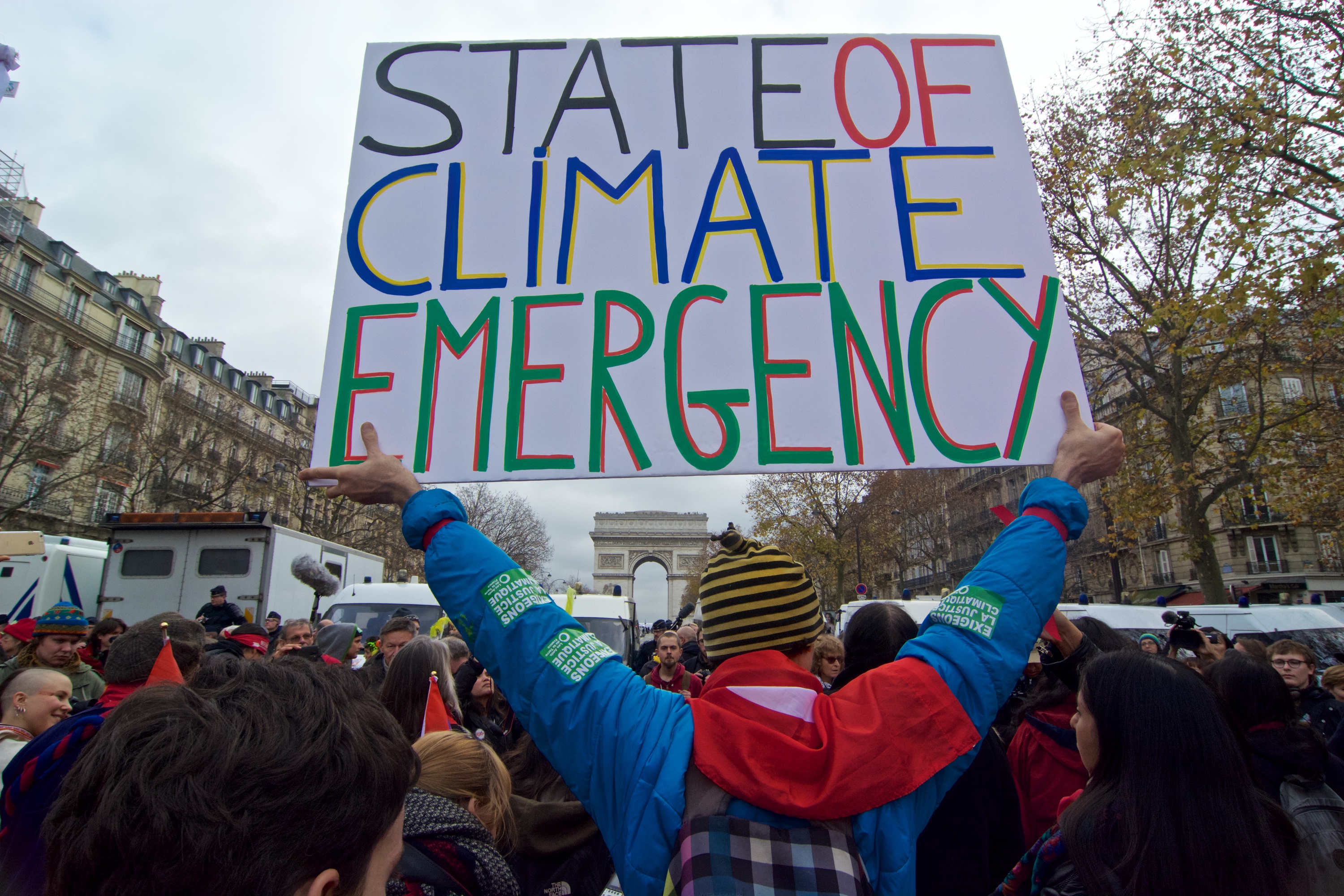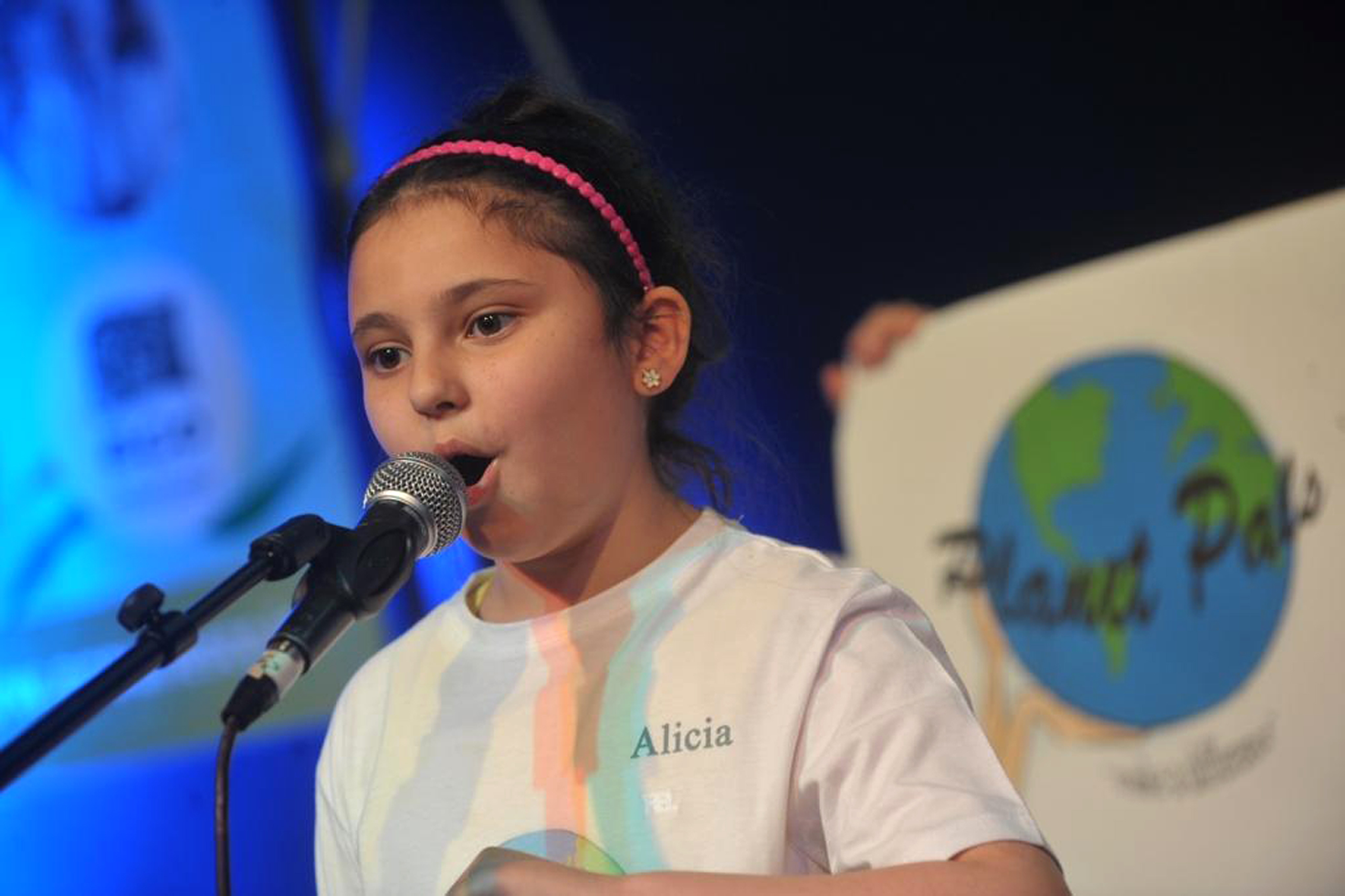COP23: The impacts of climate change on wildlife

November 18th, 2017
The impacts of climate change on wildlife were discussed at COP23 in Bonn with innovative assessment tools and novel funding schemes presented as possible solutions.
World Wildlife Fund (WWF) hosted a panel discussion Wildlife and Climate Change in the Panda Hub conference room in Bonn on Wednesday.
Dr Nikhil Advani, senior program officer for climate adaptation at WWF coordinated the event, which saw scientists from a range of environmental NGOs discuss the climate change-related challenges facing wildlife around the world.
Climate change is already having some devastating impacts on the planet’s biodiversity. For example, many species are threatened by changes in food or water availability, while warming of the oceans is leading to widespread coral bleaching.
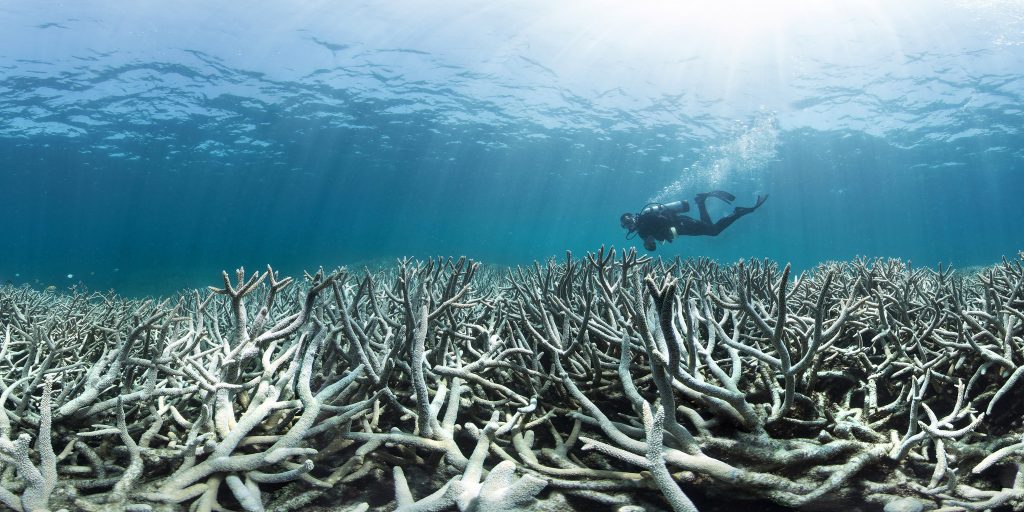
Coral bleaching at Heron Island Feb 2016 Photo: The Ocean Agency / XL Catlin Seaview Survey / Richard Vevers
Rising temperatures are predicted to expand the ranges of disease vectors such as ticks and mosquitoes. This is not only a major public health concern, with malaria and zika knocking on Europe’s front door, but it also threatens biodiversity.
Speaking at the event, Dr Advani described another often “underestimated” effect that climate change can have on wildlife, that the “coping mechanisms” of communities to climate change can harm wildlife.
He said, for example, that water scarcity is impacting endangered mountain gorilla populations as humans encroach on their habitat to collect water.

Polar Bears Across the Arctic Face Shorter Sea Ice Season Photo: NASA Goddard Space Flight Center
WWF projects
One of the initiatives that WWF have done to mitigate the impacts of climate change on wildlife is the creation of a species assessment tool.
This Climate Change Vulnerability Assessment Tool has been used to update action plans and to determine which species are most susceptible to climate change.
It is a trait-based wildlife assessment tool that uses a wide range of factors including population size, geographic range, temperature tolerance, migratory behaviour and reproductive rates to determine if a species is “vulnerable or resilient” to changes in climate.
WWF recently also established a new funding scheme, the Wildlife Adaptation Innovation Fund, which supports local projects working to reduce the vulnerability of species to climate change.
Funded projects include one that relocates walrus carcasses to minimize polar bear disturbance in the Arctic and a Tasmanian initiative that constructs artificial nests for endangered albatrosses.
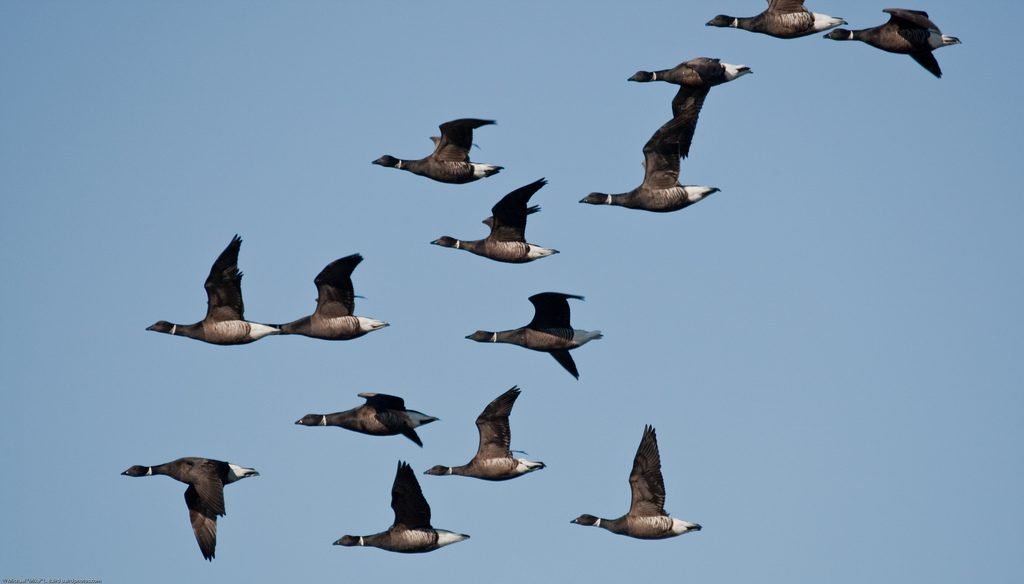
Brent Goose in flight Photo: Mike Baird
Impacts on Irish Wildlife
Increased flooding, more intense storms and rising sea levels associated with climate change will impact Ireland’s people and wildlife.
Migratory patterns of birds can be disrupted by changes in climate, which means that our winter guests such as whooper swans, brent geese and waxwings may visit more infrequently.
Increased temperatures may actually facilitate the arrival of new species. Little egrets have recently arrived in Ireland and it is predicted that the white stork may establish itself here in the near future due to our warming climate.
However, not all newcomers will be welcome. The climate change induced invasion of Chinese mitten crabs, which feed on fish eggs, is a considerable threat to our internationally renowned salmon and trout fisheries.
[x_author title=”About the Author”]
